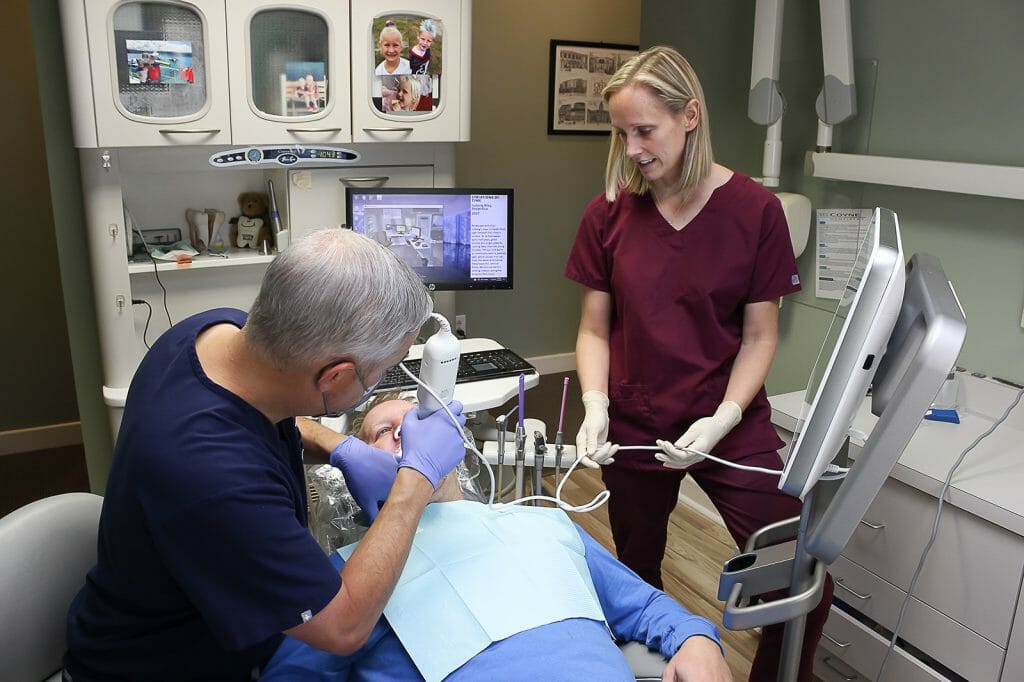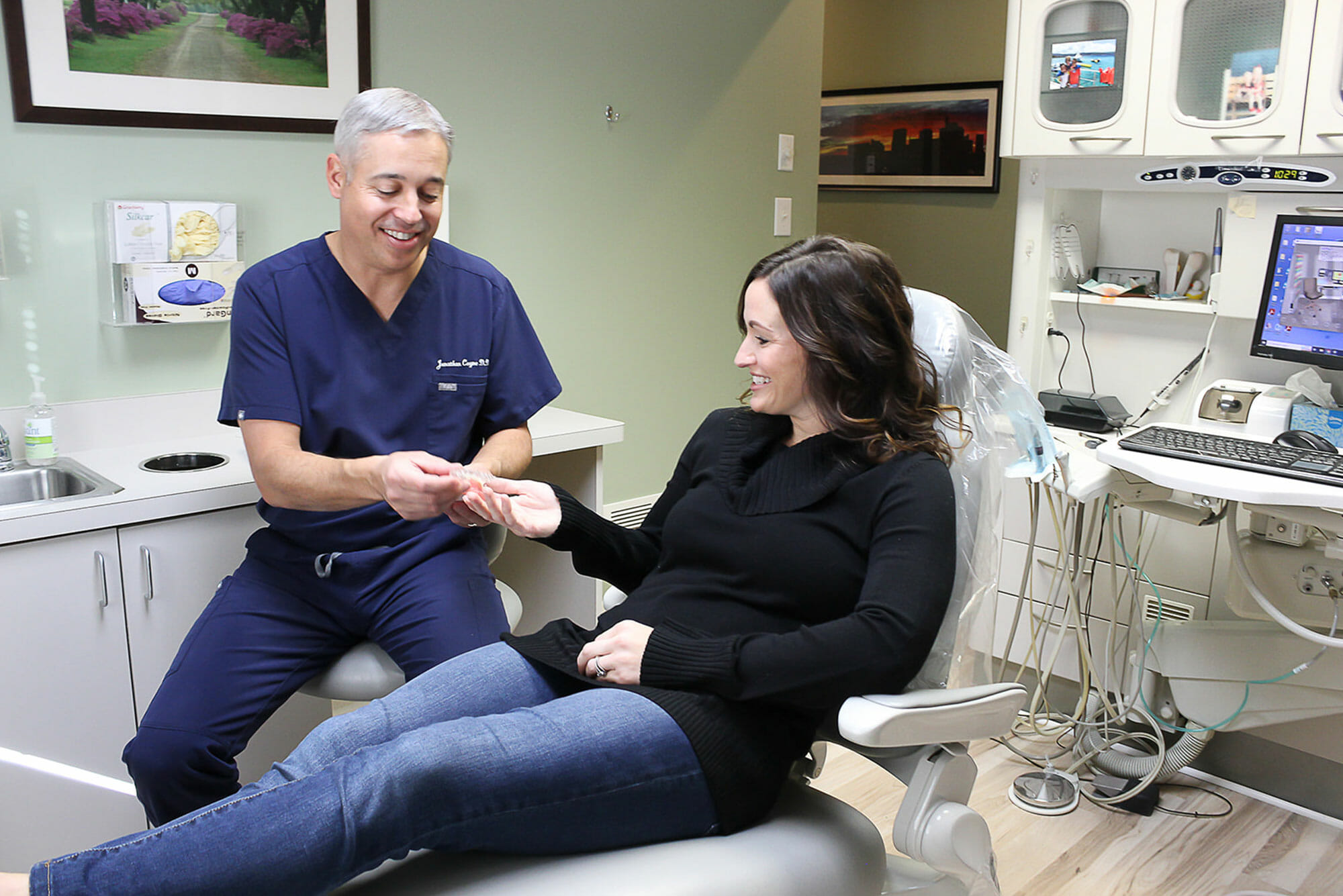 Gum disease is a significant problem for modern Americans. At least half of adults aged 30 and older have some form of gum disease. Unfortunately, because the symptoms are often minor, many people do not know they have a problem until it spreads or becomes more serious.
Gum disease is a significant problem for modern Americans. At least half of adults aged 30 and older have some form of gum disease. Unfortunately, because the symptoms are often minor, many people do not know they have a problem until it spreads or becomes more serious.
At Coyne Dentistry, we are committed to not only treating, but also educating our patients on the dangers and symptoms of gum disease. Together, we can keep your and your family’s smiles happy and healthy!
What is Gum Disease?
Gum disease is caused by an infection in the gums and soft tissues of the mouth. These infections develop when bacteria build up along the edge of the gum line. Over time, as plaque and tartar form on the surface of the teeth, bacteria become harder to remove with normal brushing and flossing.
Eventually, these bacteria may make their way below the gums and create pockets of infection, causing the gums to separate from the teeth. Gum recession, tooth loss, and other illnesses can occur if these infections are left untreated.
There are two degrees of gum disease – gingivitis and periodontitis. Gingivitis is what we call the beginning stages of gum disease. At this level, the infection is usually easy to treat. Periodontitis is more severe and often requires surgical treatment.
What is the Treatment?
Generally, we can treat gingivitis with a simple deep-cleaning procedure called scaling. During this process, one of our skilled hygienists will use dental tools to remove the plaque and tartar along your gum line and between your teeth. This will allow us to kill any bacteria and treat the infection. Over time, your gums will begin to heal and grow back naturally.
Periodontitis occurs when the infection spreads and causes decay. An infection like this often results in irreparable damage in the gums and root structure. To treat periodontitis, we may need to conduct a scaling and root planing treatment.
For this, your dentist will use a scalpel or dental laser to make a small incision in the gums to access the root structure of your teeth. After removing the infected tissues, the area will be disinfected and the incision will be closed. Depending on the severity of your infection, we may need to remove the infected portions of your gums as well. Removing the infection will allow your mouth to recover and heal.
What Are the Signs of Gum Disease?
Several signs and symptoms may point to gum disease. If you are experiencing gum recession or have one or more loose or missing teeth, you should seek medical treatment.
Other symptoms include:
- Chronic bad breath
- Tender, swollen gums
- Gums that bleed when brushing or flossing
- Gums separating from the teeth
- Sores in the mouth
- A change in your bite
If you have a family history of gum disease, are pregnant, use steroids, or frequently consume tobacco and alcohol products, you may have an increased risk of developing gum disease.
If you would like to learn more about gum disease, symptoms, and treatment options, call our office at 937-298-2424. We would be happy to answer any of your questions or schedule a consultation.

